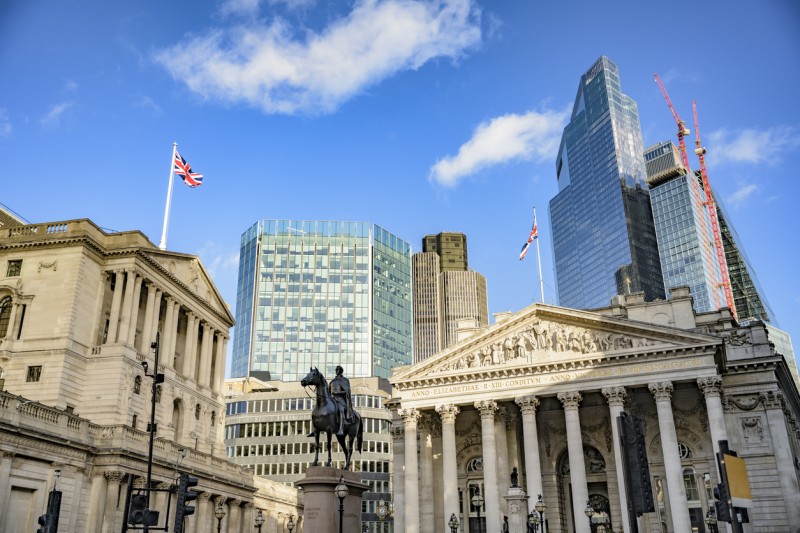The recent decisions by the Bank of England (BoE) to cut interest rates have had a notable impact on the UK housing market. With the cost of borrowing lower than ever, both potential homeowners and property investors are taking a keen interest in these developments. Such rate cuts often influence mortgage rates, making loans more affordable and potentially increasing demand for housing. Estate agents, particularly in regions like Rushden and Kettering, are closely observing these changes, as they significantly affect market dynamics.
Understanding BoE's Interest Rate Cuts
The Bank of England (BoE) plays a crucial role in shaping the economic landscape of the UK by adjusting the base interest rate. This key monetary policy tool influences lending, borrowing, and spending habits across the nation. Recent interest rate cuts by the BoE have sparked significant discussions, particularly regarding their impact on the housing market.
Reasons Behind the Rate Cuts
The BoE makes decisions about interest rate cuts based on several economic indicators and objectives. Primarily, these cuts are designed to stimulate economic activity during periods of slow growth or recession. By reducing rates, the BoE aims to lower the cost of borrowing, encouraging individuals and businesses to take out loans and invest in growth ventures.
Additionally, lower rates are intended to increase consumer spending by providing households with more disposable income. In times of economic uncertainty, such as during a financial crisis or a pandemic, the BoE may reduce rates to counteract reduced economic activity. The broader goal is to maintain inflation targets and ensure economic stability.
Historical Context and Recent Trends
Interest rate cuts are not a novel strategy for the BoE. Historically, rates have been adjusted according to changing economic circumstances, such as the financial crisis of 2008, during which the BoE reduced rates drastically to revitalise the economy. More recently, the impact of global events and domestic uncertainties, such as Brexit, have also led to similar cuts.
A trend of interest rate reduction has emerged in response to the COVID-19 pandemic, characterised by economic shutdowns and disruptions. These cuts have led to historically low rates, intended to support the economy through challenging times. As recovery efforts continue, careful monitoring of the effects of these cuts is essential in navigating future economic strategies.
Impact on House Prices
Interest rate changes by the BoE have a direct influence on the housing market, affecting everything from mortgage rates to property investment decisions. Understanding these impacts is crucial for potential homebuyers, investors, and estate agents alike.
Short-term Effects of Rate Cuts
In the short term, interest rate cuts generally lead to reduced mortgage rates. Consequently, homebuyers can secure loans at lower costs, potentially increasing the affordability of buying a home. This increased affordability often results in higher demand for property, as more individuals can enter the housing market.
With increased demand, house prices may also rise as buyers compete for available properties. For sellers, this trend might lead to quicker sales and higher offers. Consequently, estate agents, whether in bustling cities or towns like Rushden and Kettering, might witness increased activity and interest in property listings.
Additionally, rate cuts might spur refinancing activities as existing homeowners seek to reduce their mortgage payments by locking in lower rates. This refinancing boom can lead to a flurry of activity in the housing market in the months following the announcements of rate cuts.
Long-term Implications for the Housing Market
While the immediate effects of interest rate cuts can amplify housing market activity, it is the long-term implications that ultimately shape market dynamics. Sustained low-interest rates can lead to prolonged periods of increased house prices, potentially making it challenging for first-time buyers to enter the market as affordability decreases over time.
Furthermore, if interest rates remain low for extended periods, it could lead to an overheated housing market, characterised by rapid price increases that may not be sustainable. In contrast, as rates eventually rise again, the market might face corrections, with slowing price growth or even depreciation in property values.
For property investors, sustained low rates may provide opportunities for investment in property development and rental markets, given the potential for favourable returns. However, strategic considerations are necessary to account for potential rate hikes in the future.
Regional Variations in House Price Changes
The effects of the BoE's rate cuts are not uniform across all regions in the UK. Different areas experience varying impacts based on local economic conditions, demand, and housing supply factors. For instance, major cities might witness more pronounced increases in house prices due to heightened demand and limited available properties.
Conversely, rural areas or regions with abundant housing supply might see more moderate price changes. In towns like Rushden and Kettering, local market conditions, including employment rates and demographic trends, will play significant roles in determining how these rate cuts influence house prices.
Prospective buyers and investors should thus consider these regional variations when making housing market decisions. Understanding the unique dynamics in specific areas can provide insights into the best times and places to buy or invest, ensuring informed choices in alignment with both short and long-term goals in the property market.
Mortgage Affordability and Access
The recent interest rate cuts by the Bank of England (BoE) significantly influence mortgage affordability and access within the UK housing market. Understanding these changes can help potential homeowners and investors make informed decisions.
Changes in Mortgage Rates and Lending Criteria
Interest rate cuts typically lead to a reduction in mortgage rates, making borrowing more affordable for potential homebuyers. Lower mortgage rates mean monthly repayments can be more manageable, which often results in increased demand for property.
- Lower Monthly Payments: With reduced interest rates, monthly mortgage payments decrease, allowing more people to consider purchasing a home. This expanded access can lead to heightened competition in the housing market, potentially driving up house prices over time.
- Lending Criteria: Despite the reduction in rates, lenders might tighten lending criteria to mitigate their risks. As a result, borrowers might still face stringent checks on their financial standing, such as income stability and credit scores, influencing their ability to secure favourable mortgage deals.
Opportunities for First-time Buyers
First-time buyers stand to benefit notably from the decrease in interest rates. The affordability of mortgages becomes more achievable with lighter financial burdens in terms of initial and ongoing payments. As such, now may be an opportune moment for many looking to step onto the property ladder, especially if they can secure a fixed-rate mortgage that guarantees stability amidst future rate fluctuations.
- Increased Options: More properties might fall into a first-time buyer's budget due to the drop in interest rates, providing a wider array of housing options.
- Government Schemes: With government assistance programs often designed to support first-time buyers, the combination of reduced rates and these incentives can make purchasing more feasible.
Challenges for Existing Mortgage Holders
Existing mortgage holders may not find the interest rate cuts immediately beneficial unless their mortgage is on a variable or tracker rate, which would typically adjust downwards in line with cuts.
- Fixed-rate Mortgages: Those with fixed-rate mortgages might not see any financial relief until their current term ends, at which point they could refinance at the newer, lower rates.
- Home Equity: A rise in house prices due to increased buying activity could benefit existing homeowners by boosting home equity. However, if the market becomes overheated, it could also lead to increased volatility and concerns about maintaining long-term property value.
Considerations for Property Investors
Property investors face a unique set of opportunities and challenges in light of BoE’s interest rate cuts. Despite the potential risks, the market presents plenty of new avenues for investment.
Risk and Return in a Low-Interest Environment
Interest rate cuts create an environment of lower returns on savings but may offer higher returns on property investment given the potential rise in housing demand and subsequently property prices.
- Interest Rate Risks: While borrowing costs are low, the risk lies in the potential future increases of interest rates which could impact profit margins if not anticipated beforehand.
- Return on Investment: Low rates could mean better financing offers, thus improving the return on investment if property values continue to surge with the market trend.
Investment Strategies in the Current Market
Investors should develop strategies that ensure robust returns even as the market shifts. These strategies might include focusing on properties in emerging or high-demand areas or diversifying portfolios to mitigate risks.
- Location Matters: Focusing investments in areas with high growth prospects, such as urban expansion zones or regions experiencing regeneration, can enhance potential returns.
- Diversification: Balancing investments across different property types, such as residential and commercial, helps spread risk and stabilise overall property income.
Prospects for Rental Yields
With many individuals potentially priced out of buying due to rising house prices, demand for rental properties could increase, presenting lucrative prospects for rental yields.
- Increased Demand for Rentals: As buying becomes more competitive, more people might turn to renting, potentially driving up rental rates and ensuring steady income streams for landlords.
- Long-term Investments: Investors focusing on buy-to-let properties may find favourable rental yields, making this aspect of property investment appealing in a low-interest-rate climate.
In summary, the BoE's interest rate cuts present a dynamic and evolving landscape for the UK housing market, both benefitting and challenging various stakeholders depending on their positions and strategies. As the market adjusts, keeping informed of these shifts and responding strategically will be key to making the most of the current conditions.
Conclusion
In summary, the recent interest rate cuts by the Bank of England have created a ripple effect on the UK housing market. These changes lead to a rise in property demand due to more affordable mortgage rates. This scenario can be advantageous for first-time buyers who are eager to step onto the property ladder. However, it also challenges sellers, who need to consider their pricing strategies in a competitive market. Both buyers and sellers should remain informed and consult with local estate agents, such as those in Rushden or Kettering, to make well-informed property decisions.



